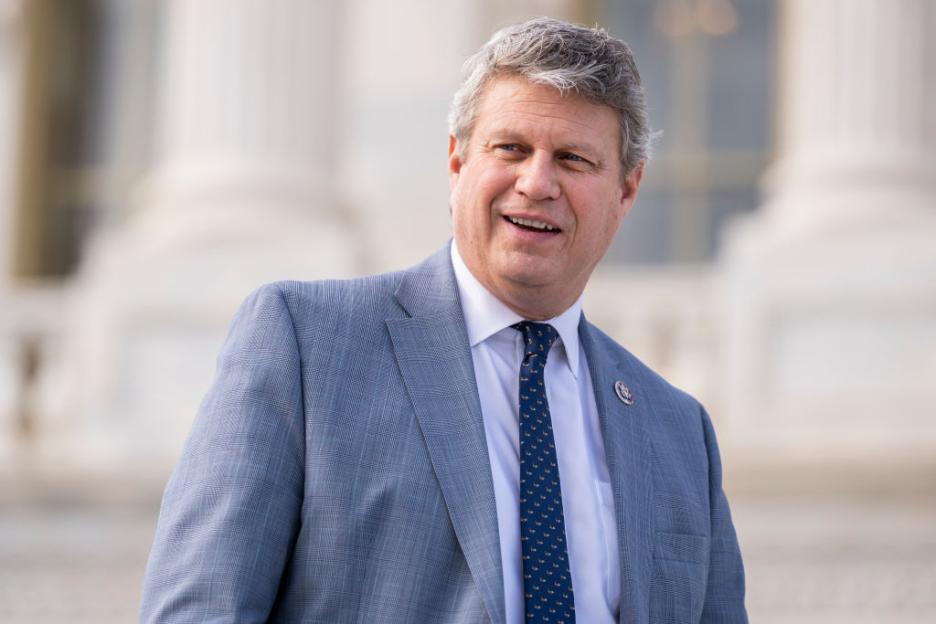Table of Contents
- Concern Over Violence Against Christians
- Criticism of Government Response
- Pattern of Coordinated Attacks
- Call for US Action
- Personal Testimonies
- Need for Stronger Measures
- Nigeria’s Strategic Importance
- Seriousness of the Situation
United States Congressman Bill Huizinga has voiced his concern regarding what he perceives as the Nigerian government’s insufficient commitment to addressing the ongoing assaults on Christian communities within the country.
The lawmaker criticized the official response from Abuja, describing it as dismissive.
In an exclusive interview with Arise Television, Huizinga stated that the pattern of violence against Christians in Nigeria indicated signs of coordinated and targeted attacks.
He emphasized the need for the US to act promptly to avert another large-scale tragedy in Africa, drawing comparisons to previous global failures in Rwanda and South Sudan.
The Congressman mentioned that he had engaged with survivors and religious leaders who feel specifically targeted in the frequent assaults on their homes and communities.
He urged the Nigerian government to implement stronger measures to safeguard its citizens and to present concrete plans to mitigate the rising tide of violence.
Huizinga further highlighted Nigeria’s crucial role in the stability and economic future of West Africa, urging the government to take decisive action to prevent further bloodshed.
He stated: “I’m pleased that we can discuss this. This issue is of utmost importance, and as I’ve been telling some of my colleagues, we were too late in responding to Rwanda, South Sudan, and many other atrocities that have occurred in Africa and elsewhere. Let’s not delay our response this time.”
“My primary concern is the attacks perpetrated by the Fulani and radicalized Islamists, who are targeting both moderate Muslims and Christians. It’s difficult to deny the coordinated nature of these attacks, especially when 200 Christians were killed on Christmas Eve a few years ago. I have spoken to villagers and religious leaders who have been enduring this violence for years; they feel specifically targeted.”
“They are acutely aware that when their homes are invaded or they are attacked during the night, this is not merely a case of conflict; they feel distinctly targeted. Consequently, the US response has been swift.”
“I want to approach this matter seriously because, frankly, I am not convinced that the Nigerian government is treating the situation with the gravity it deserves. They need to show what actions they are taking to protect not only Christians but all citizens, and what proposals they have to decrease the level of violence.”
“Earlier, you asked if I was satisfied with the response. No, I believe their stance has been, ‘there is no significant problem.’”
“However, I believe there is a problem, and I would like them to clearly demonstrate why they think there is none. As I mentioned in my meeting with the Foreign Minister, I don’t think this issue was adequately addressed, and I would like to see a satisfactory plan on how they intend to tackle the violence in Nigeria, particularly against Christians.”
“Moreover, there are many other violent situations we discussed earlier, and we touched on the importance of Nigeria not just in West Africa but across the entire African continent, and the economic potential that exists there.”
Frequently Asked Questions
What specific actions does Congressman Huizinga want the Nigerian government to take?
Congressman Huizinga urges the Nigerian government to implement stronger measures to protect its citizens and to outline concrete steps to reduce the increasing violence against Christian communities.
What comparisons does Huizinga make regarding the current situation in Nigeria?
He compares the current violence against Christians in Nigeria to past global failures, particularly in Rwanda and South Sudan, emphasizing the need for timely action to prevent another large-scale atrocity.
How does Huizinga describe the attacks on Christian communities?
He describes the attacks as coordinated and targeted, noting the specific nature of violence against Christians and moderate Muslims by radicalized groups.






